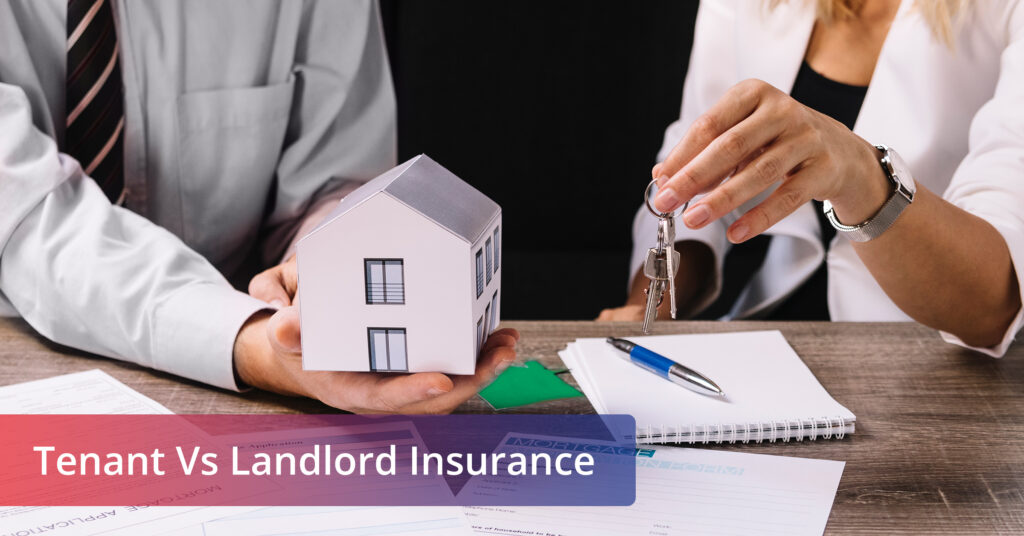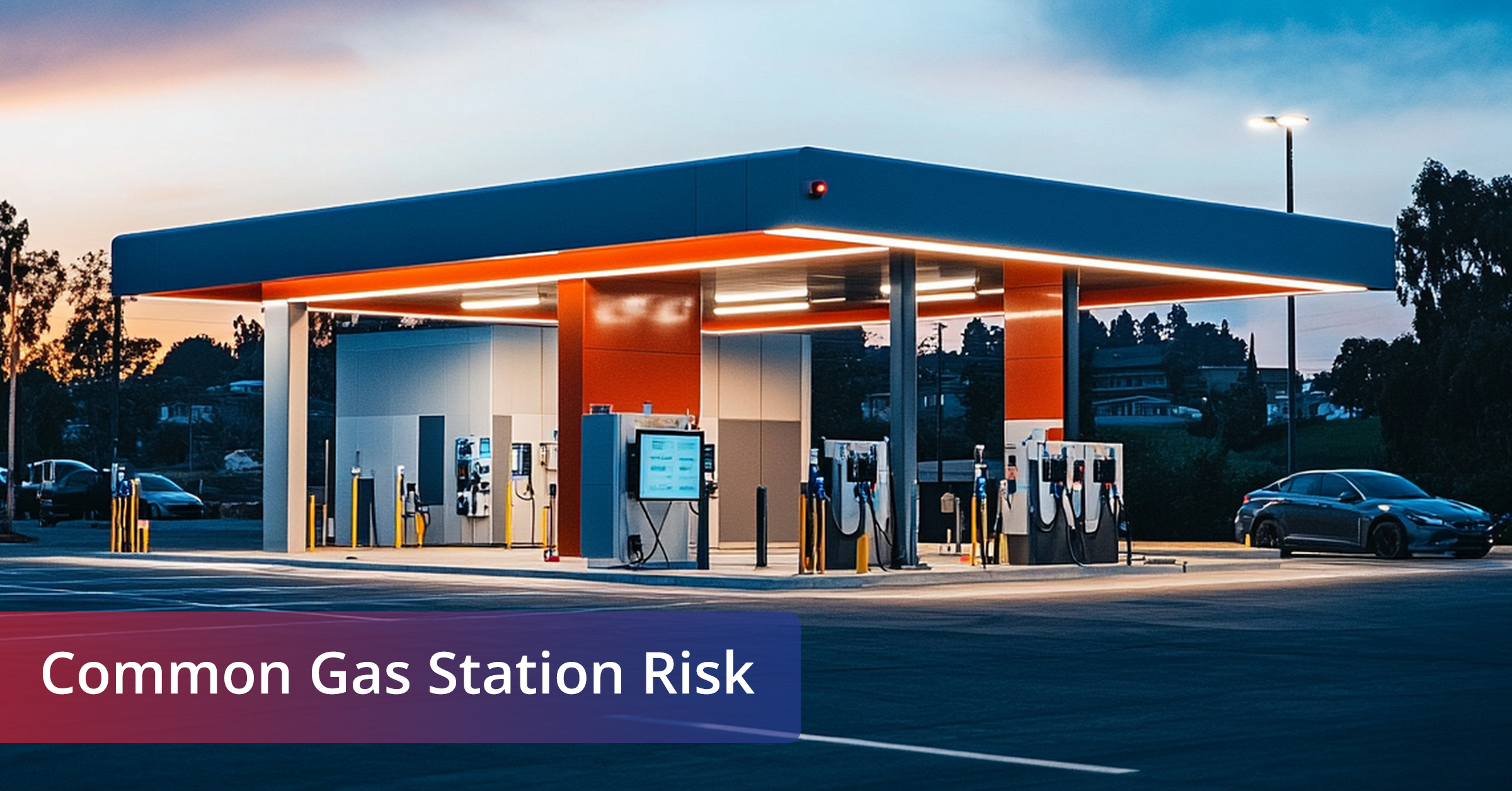Landlords and tenants alike are not immune to the dangers inherent in renting a property. Luckily, these risks can be mitigated with suitable insurance plans. Understanding the difference between tenant vs landlord insurance is crucial—while most landlords and renters are eligible for property insurance, the real protection for your investment from risks such as theft, accidents, and burst pipes lies in selecting the appropriate coverage. Noting the difference between tenants’ and landlords’ coverage helps you stay away from unexpected costs. Let’s uncover how tenant, landlord, and rental property insurance work and more.
TL;DR – Quick Comparison
Tenant insurance helps renters protect their personal belongings and covers liability if someone is injured in the rental. Landlord insurance is for property owners and safeguards the building itself as well as the rental income if the property becomes uninhabitable. The cost of both types of insurance depends on various factors. It includes property type, location, and the amount of coverage chosen. Basically, if you rent, you need tenant insurance; if you own and rent out property purchase a landlord insurance
What is Tenant Insurance?
Tenant insurance (sometimes known as renters insurance) protects those who rent their living space. It does not cover the property owned by the landlord or the building itself. It includes:
- Things you own: This home rental insurance protects tenants from dangers like fire, theft, mischief, and some types of weather.
- Liability: Protects the landlord financially if the renter hurts someone or breaks their property by accident.
- Extra costs for living: If the rented home becomes unlivable because of an insured event, like a fire, the coverage will pay for extra costs for temporary housing and necessities.
A decent tenant insurance coverage can replace a stolen laptop, help pay for water damage to your furnishings, or cover medical fees if someone gets wounded on your floor. No matter how big or small a flat is, you should get insurance for apartment renters to protect yourself against risks like fire, theft, and liability issues.
What is Landlord Insurance?
Landlord insurance is for people who rent out their homes, flats, or other properties. Unlike other home insurance policies, it does not cover the personal belongings of the tenants. In most cases, landlord insurance coverage includes:
- Coverage for buildings: the costs of fixing or rebuilding the building after it has been damaged by fire, wind, or other forces it’s like insurance for a rental property that keeps the building safe.
- The furniture and appliances that come with a furnished room are covered as part of the landlord’s property rights.
- Liability coverage holds the landlord liable for injuries to tenants or guests on the property.
- In the case that a covered catastrophe, like a fire, makes the property uninhabitable, compensation for missed rent might be obtained.
- Coverage for tenant rent default, legal fees, and unintentional damage is optional.
Key Differences Between Tenant & Landlord Insurance
Now, let’s take a brief look at the main distinction between these two home insurance policies:
Feature | Tenant Insurance (Renters Policy) | Landlord Insurance (Landlord Policy) |
Who Buys It | Tenant | Landlord |
What It Covers | Possessions, legal responsibility, and out-of-pocket costs of resident | Building structure, landlord’s property, liability, rental income |
Structure Coverage | No | Yes |
Personal Property Coverage | Yes (tenant-owned items) | Yes (landlord-owned items only) |
Liability Protection | Yes | Yes |
Loss of Use/Living Expenses | Yes | Yes (for lost rental income) |
Cost (national average, annual) | $186–$276 | $1,288 (varies on location, size, and whether it’s an apartment, multi-unit complex, or insurance for rental house policy) |
Want to dive deeper? Check out our detailed guide on renters insurance for more insights.
Cost Comparison
So, how much does landlord insurance cost? Around $1,288 per year, or $107 per month, is what the average American pays. It costs more to cover a building because there is a greater chance of losing money from renters. The amount can also vary depending on criteria, including location, property type, coverage quantity, and other risk factors. Higher rates are expected for larger investments like landlord insurance for commercial property due to increased value and business claims. Covering a single-family home can end up being less expensive than a multi-unit complex. This is because insurance for a rental house typically costs less than insurance for buildings with more than one unit.
Investing in tenant security is more cost-effective. The average monthly cost of a plan is $15–$23, or $186–$276, per annum. Some organizations offer basic security for $5 a month, which is incredibly affordable.
If you’re looking to cut down these costs, take a look at our top tips for saving on home insurance.
Conclusion
Renters and landlords face different risks; thus policy matters. While landlords focus on property, revenue, and responsibility, tenants require possessions and liability protection. Both work to cover all angles. Wondering, how much coverage do I need for renters insurance? Start by calculating the worth of your belongings. Owners might consider rental-specific homeowner insurance coverage. Learn more about our homeowners insurance services or contact us today for tailored coverage that protects your rental journey.
Tenant and landlord insurance are both branches of home insurance, each focusing on different risks. For a full overview, explore our guide on home insurance – all you need to know.
FAQS
If I drop my laptop, will my renter's insurance cover it?
Not in most cases. Most renters insurance includes fire, theft, and some accidents, but not damage that happens by accident. Damage caused by accidents may need extra covering.
Does the renter's insurance cover the furniture?
Not at all. The building and the landlord’s tools are the only things that the insurance covers. Renters need to get insurance for their things like furniture, clothes, and electronics.
If my rental home leaks, who pays for my hotel stay?
If there is damage, tenant insurance will pay for hotel stays and extra living costs. Landlord insurance only covers lost rental income, not living costs.
Can I acquire protection for myself and my tenants?
Not as you think. The landlord may cover the premises, and a live-in renter in a separate room may have liability and property insurance.
Does renter insurance only cover expensive apartments?
Absolutely not. Tenant insurance protects property, liability, and living costs following a protected incident. No matter if they live in a small apartment, shared space, or mansion.
Can landlord insurance cover unpaid rent?
Sometimes. Some landlord insurance plans give “rent default” coverage to recover unpaid rent if the renter leaves early or can’t pay for covered circumstances.
What is renters insurance, and what does it cover?
Renters’ insurance helps you when your stuff gets stolen or damaged in a rented home. It protects your things if they get stolen or damaged by fire, water, or accidents. It helps you pay if someone gets hurt at your place and you need to cover it. It won’t cover the house itself, which is your landlord’s duty. Renter’s insurance is budget-friendly and protects you from unexpected money troubles.






